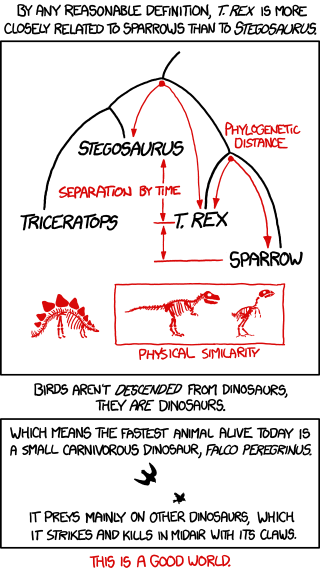The Dinosaurs never saw it coming
We likely wouldn't be here if the asteroid hadn't hit . But I do wish some of the non avian dino's like Triceratops could have made it.
Last edited:

The Dinosaurs never saw it coming
But I do wish some of the non avian dino's like Triceratops could have made it. My favorite dino.

Outside the confines of our safe little Earth, we have a very big and very hostile universe. So many things out there could destroy life on Earth.
Maybe, and using Ammonia instead of Water?
It's fairly slim.
But if we did - why would it be troubling?
As a stark reminder to us that life on Earth will one day come to an end by something beyond our control , an asteroid hitting us or a passing star which would disrupt earth orbit and probably throw us into space or swallowed by a unseen black hole.
We know that in a billion years the sun will be about 20 percent hotter which will likely scorch the surface clean of life.
That's far too morbidly fatalistic on a cosmic scale for me, I'm afraid. I'd rather focus on the bright, optimistic bits during the short duration that my life will give me, but I respect your right to dwell on what might or might not happen a billion years from now.
Certainly not alive. A fossil would be intriguing. Especially if the helmet visor or other pieces of the suit surviveWe won't.
Certainly not alive. A fossil would be intriguing. Especially if the helmet visor or other pieces of the suit survive
Mars lost it's oceans 3 billion years ago , not enough time for any kind of vertebrae life forms to have evolved.

We know that in a billion years the sun will be about 20 percent hotter which will likely scorch the surface clean of life.
